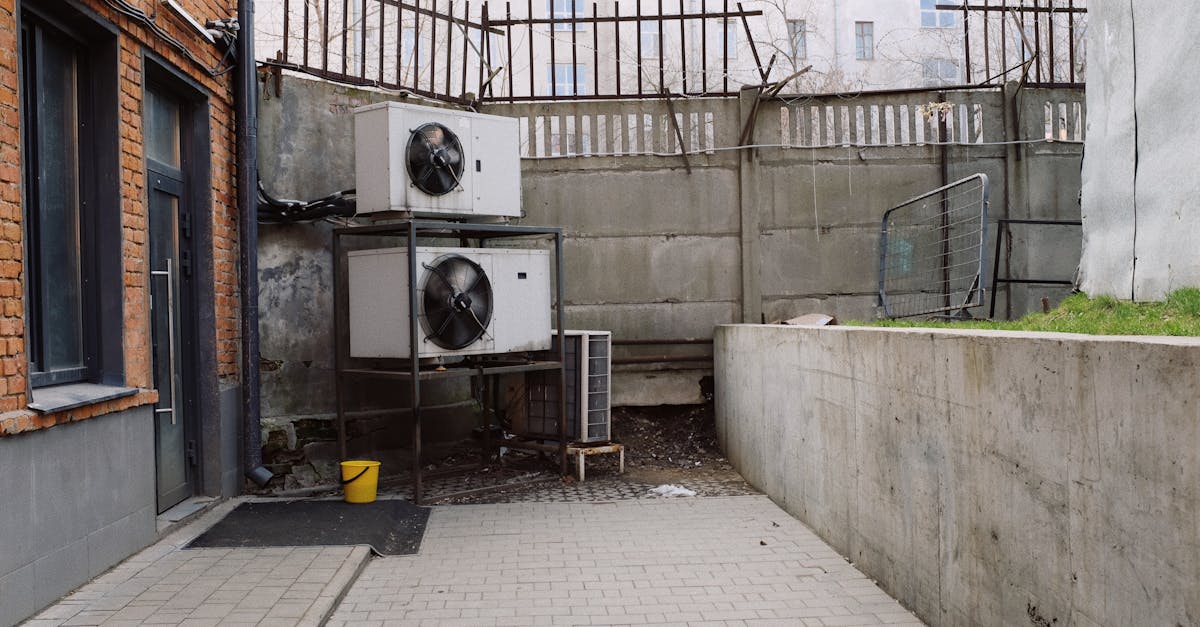
10 Benefits of Advanced Refrigeration Systems for Businesses
Cost Savings on Maintenance
Investing in advanced refrigeration systems significantly reduces the frequency of maintenance required. With improved technology and robust components, these systems are built to withstand the rigours of daily use. Businesses can rely on longer intervals between servicing, which in turn lowers operational costs. The need for urgent repairs and unexpected downtime becomes a rarity, allowing companies to allocate resources efficiently.
These systems often come with warranties that cover potential malfunctions, providing an additional layer of financial protection. Enhanced performance also means that energy consumption is optimised, leading to a reduction in utility bills. By minimising both maintenance demands and operating costs, businesses can achieve a more predictable budget while enjoying the benefits of reliable refrigeration.
Reducing Long-Term Expenditure
Advanced refrigeration systems are designed with efficiency in mind, reducing energy consumption significantly. These systems often feature improved insulation and modern technological advancements. As a result, businesses can expect lower utility bills over time. This efficiency not only contributes to immediate savings but also serves to protect against rising energy costs in the future.
Investing in high-quality refrigeration technology can lead to decreased repair needs. As systems operate more reliably, the costs associated with regular maintenance and unforeseen breakdowns diminish. This reliability can result in extended lifespans for the equipment, allowing businesses to allocate resources more effectively. Long-term expenditure can therefore be managed with greater ease, ensuring that funds are available for other essential operations.
Versatile Application Across Industries
Advanced refrigeration systems cater to a wide array of industries, providing tailored solutions that meet specific operational requirements. From the food and beverage sector, where maintaining precise temperatures is crucial, to pharmaceuticals that demand strict compliance with temperature controls, these systems find their place in various applications. Their flexibility allows businesses to adapt to changing demands, ensuring product integrity and customer satisfaction across different markets.
In addition to food production and healthcare, advanced refrigeration technology plays a significant role in sectors like hospitality and retail. Restaurants rely on efficient refrigeration to preserve ingredients while grocery stores benefit from effective displays that attract customers. The adaptability of these systems makes them indispensable for enhancing operational efficiency and meeting regulatory standards, ultimately leading to improved service delivery in diverse business environments.
Tailored Solutions for Diverse Business Needs
Advanced refrigeration systems can be customised to meet the specific requirements of various industries. Different businesses have unique challenges based on their operational needs, product types, and environmental conditions. By assessing these factors, manufacturers can develop solutions that optimise efficiency and effectiveness. This level of customisation enables companies to maximise their investment while addressing specific challenges, particularly in food service, pharmaceuticals, and biotechnology sectors.
Additionally, tailored systems can adapt to fluctuations in demand, ensuring businesses do not overspend on energy and maintenance. Features such as variable speed compressors and smart controls allow for greater flexibility. Companies can implement systems that prioritise energy efficiency during peak times while adjusting to lower demands without compromising product quality. This adaptability supports not only operational goals but also sustainability objectives, making it easier for businesses to achieve their environmental targets.
Enhanced Safety Standards
Advanced refrigeration systems incorporate features designed to prioritise safety in various business environments. Many of these systems are equipped with leak detection technology that promptly identifies hazardous refrigerant leaks, reducing the risk of potential accidents. The implementation of robust insulation materials also minimizes the chance of ice build-up, a common hazard that could lead to slipping incidents.
Regular monitoring systems enhance operational safety by ensuring that temperatures remain within specified parameters. This is crucial for businesses that deal with perishable goods where a temperature fluctuation can lead to spoilage and health risks. The integration of user-friendly interfaces allows staff to easily monitor and manage conditions, thereby fostering a safer working environment for employees and customers alike.
Protecting Employees and Customers
Advanced refrigeration systems prioritise safety through innovative features designed to mitigate risks associated with temperature fluctuations and equipment failure. By maintaining optimal temperatures, these systems reduce the likelihood of product spoilage, which in turn protects both employees and customers from potential health hazards. Equipment designed with safety protocols, including automatic shut-off mechanisms and alarms, ensures that any malfunctions are addressed promptly, fostering a secure working environment.
Implementing high-standard refrigeration solutions not only safeguards product integrity but also enhances overall workplace conditions. Employees benefit from a controlled environment that minimises exposure to unsafe temperatures, thereby reducing the risk of heat-related ailments. Furthermore, customers gain confidence in the freshness and quality of products, leading to greater satisfaction and loyalty. Investing in advanced refrigeration systems ultimately reinforces a business’s commitment to health and safety standards.
FAQS
What are advanced refrigeration systems?
Advanced refrigeration systems refer to modern cooling technologies that offer improved efficiency, reliability, and performance compared to traditional refrigeration methods.
How can advanced refrigeration systems lead to cost savings on maintenance?
These systems are designed with improved durability and energy efficiency, which reduces the frequency and cost of repairs, leading to significant savings over time.
Can advanced refrigeration systems be used in various industries?
Yes, they have versatile applications across multiple industries, including food and beverage, pharmaceuticals, and healthcare, providing tailored solutions for diverse business needs.
What types of tailored solutions do advanced refrigeration systems offer?
Tailored solutions can include customised cooling capacities, energy-efficient designs, and specific features to meet the unique requirements of different businesses and industries.
How do advanced refrigeration systems enhance safety standards?
They incorporate advanced safety features and technologies that help protect both employees and customers by ensuring proper temperature control and reducing the risk of accidents related to refrigeration failures.
Related Links
Why Refrigeration Systems Are Essential in Food SafetyWhy Energy-Efficient Refrigeration Matters for Sustainability
Roundup of Innovations in Refrigeration Technology
Review of Top Refrigeration Systems for Industrial Use
Historical Evolution of Refrigeration Systems in Industry
What to Consider When Upgrading Your Refrigeration System
What to Know About Modern Refrigeration Technologies
How to Maintain Efficiency in Refrigeration Systems